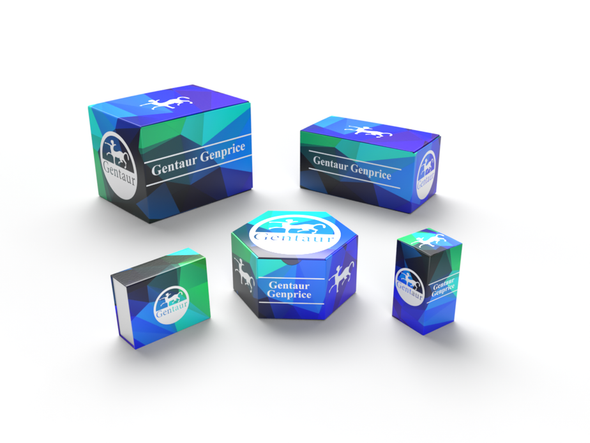740
Human 7-dehydrocholesterol reductase (DHCR7) ELISA Kit | AE61277HU
- SKU:
- 740-AE61277HU
- Availability:
- Usually ships in 5 working days
Description
Human 7-dehydrocholesterol reductase (DHCR7) ELISA Kit | AE61277HU | Gentaur UK, US & Europe Distribution
Species Reactivity: Human (Homo sapiens)
Abbreviation: DHCR7
Alternative Name: SLOS; delta-7-dehydrocholesterol reductase|sterol delta-7-reductase
Application: ELISA
Range: 0.156-10 ng/mL
Sensitivity: 0.055 ng/mL
Intra-Assay: ≤6.2%
Inter-Assay: ≤10.5%
Recovery: 0, 99
Sample Type: Serum, Plasma, Other biological fluids
Detection Method: Sandwich
Analysis Method : Quantitive
Test Principale: This assay employs a two-site sandwich ELISA to quantitate DHCR7 in samples. An antibody specific for DHCR7 has been pre-coated onto a microplate. Standards and samples are pipetted into the wells and anyDHCR7 present is bound by the immobilized antibody. After removing any unbound substances, a biotin-conjugated antibody specific for DHCR7 is added to the wells. After washing, Streptavidin conjugated Horseradish Peroxidase (HRP) is added to the wells. Following a wash to remove any unbound avidin-enzyme reagent, a substrate solution is added to the wells and color develops in proportion to the amount of DHCR7 bound in the initial step. The color development is stopped and the intensity of the color is measured.
Product Overview: 7-dehydrocholesterol reductasean enzyme that removes the C (7-8) double bond in the B ring of sterols and catalyzes the conversion of 7-dehydrocholesterol to cholesterol. This gene is ubiquitously expressed and its transmembrane protein localizes to the endoplasmic reticulum membrane and nuclear outer membrane. Mutations in this gene cause Smith-Lemli-Opitz syndrome (SLOS) ; a syndrome that is metabolically characterized by reduced serum cholesterol levels and elevated serum 7-dehydrocholesterol levels and phenotypically characterized by mental retardation, facial dysmorphism, syndactyly of second and third toes, and holoprosencephaly in severe cases to minimal physical abnormalities and near-normal intelligence in mild cases. Alternative splicing results in multiple transcript variants that encode the same protein.
Stability: The stability of ELISA kit is determined by the loss rate of activity. The loss rate of this kit is less than 5% within the expiration date under appropriate storage condition. The loss rate was determined by accelerated thermal degradation test. Keep the kit at 37°C for 4 and 7 days, and compare O.D.values of the kit kept at 37°C with that of at recommended temperature. (referring from China Biological Products Standard, which was calculated by the Arrhenius equation. For ELISA kit, 4 days storage at 37°C can be considered as 6 months at 2 - 8°C, which means 7 days at 37°C equaling 12 months at 2 - 8°C) .






